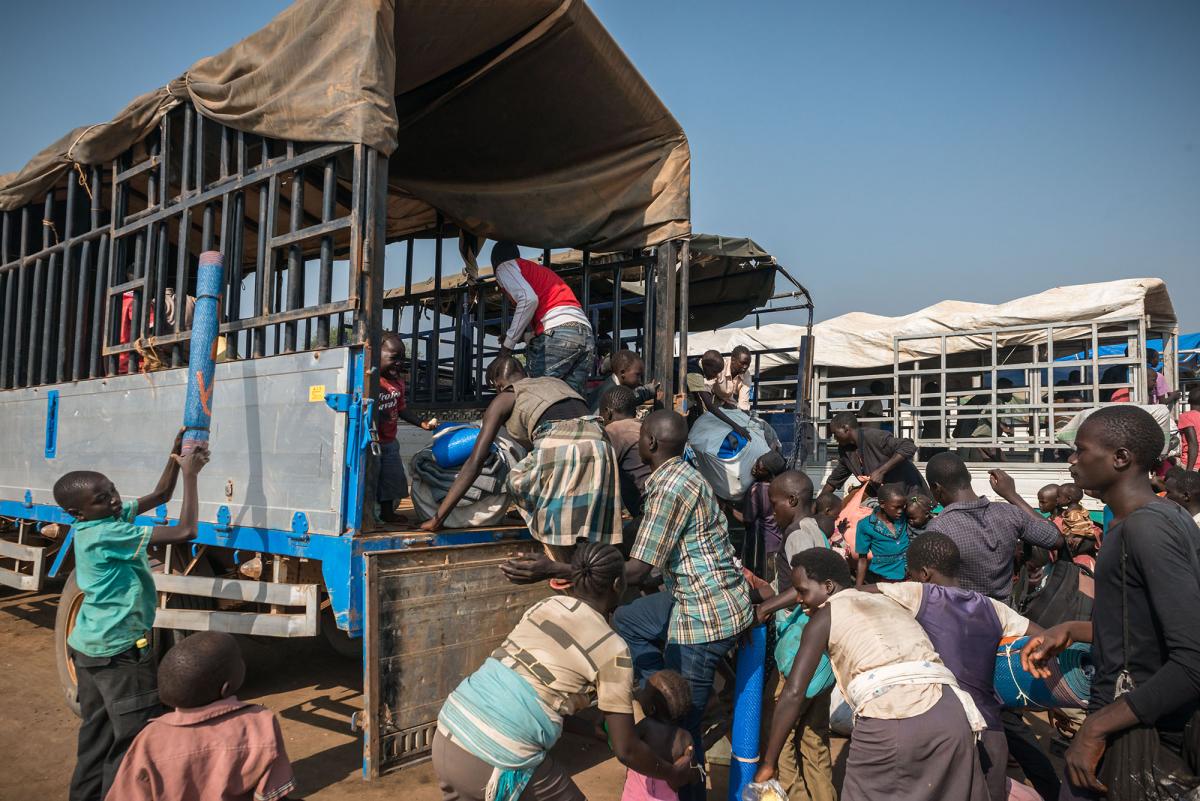
Since 2016, more than 600,000 South Sudanese refugees have arrived in Uganda1. The first waves of refugees came last July, following clashes that erupted in South Sudan’s capital, Juba. More recent arrivals have fled the widespread insecurity in the country. They usually entered through informal border points or arriving through neighouring Democratic Republic of Congo, in order to avoid the direct routes in South Sudan, where soldiers are present. Since men often stayed behind to fight or defend their properties, the majority of the refugees are women and children, arriving exhausted.

Most of the new arrivals have been hosted in the main Bidibidi refugee complex. As of early March 2017, the refugee population was over 270,000 persons, which is beyond capacity. © Yann Libessart / MSF

Once they arrive the final settlement location, they will be supplied with basic food rations, blankets, mosquito nets, cooking utensils, hygiene items and construction materials such as machetes for cutting trees to build huts. © Yann Libessart / MSF

At the resettlement sites, MSF and other humanitarian agencies help provide water through trucking before sufficient boreholes can be drilled. © Yann Libessart / MSF

MSF provides medical care inside the refugee complex. The most common pathologies are malaria and diarrhea, but chronic diseases and mental health are also an issue. Due to the fast growing population, MSF has started to construct an inpatient medical facility inside the Bidibidi refugee complex. © Yann Libessart / MSF
1Figures from the office of the United Nations High Commissioner for Refugees




